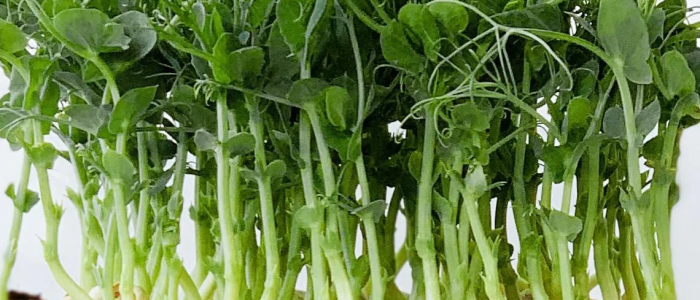-
 Turf Grass Seed Bluegrass, Bentgrass, Ryegrass, Fescues...
Turf Grass Seed Bluegrass, Bentgrass, Ryegrass, Fescues...
-
 Forage Seed Bromes, Clovers, Fescue, Wheatgrass, Legumes
Forage Seed Bromes, Clovers, Fescue, Wheatgrass, Legumes
-
 Grains Wheat Grain, Rye Grain
Grains Wheat Grain, Rye Grain
-
 Cover Crop Seed Buckwheat, Clover, Peas, Ryegrain
Cover Crop Seed Buckwheat, Clover, Peas, Ryegrain
-
 Wildflower Seed Mixtures, Singles, Annual, Perennial
Wildflower Seed Mixtures, Singles, Annual, Perennial
-
 Sprouting Seeds Fully certified Non-GMO Organic seeds for sprouts or microgreens
Sprouting Seeds Fully certified Non-GMO Organic seeds for sprouts or microgreens
Maple Peas Non-GMO Sprouting Seeds
Maple Pea shoots are the young, edible leaves and stems of pea plants belonging to the Fabaceae family. Green pea sprouts are typically grown in water, harvested after a few days of growth and consumed with the seed and root. The shoots are more mature and are cultivated in soil, harvested after actual leaves appear, and eaten with the stem, leaves and developing tendril. Pea shoots are favored for their crisp, tender texture and sweet flavor. They are delicious stir-fryed, tossed in green salad, incorporated in sandwiches or simply eaten raw.
Seeding Rate:
Indoor: 8-12 oz./ 10”x 20” tray
Outdoor: 30-40 lbs./acre
How to Grow: Soak seeds overnight before planting. If grown indoors, germinate in darkness for at least two days (until germinated). Sow densely (nearly touching) in moist potting soil at a depth of 1/8” — with temperatures 60°F to 70°F in full sun (or under grow lights). Keep the soil moist, but allow it to drain. Harvest when the seedlings are about 6-8” tall (about 14-18 days). Cut with sharp scissors, leaving 1” above soilbed. Shoots will regrow, providing 3-4 cuttings per plant.
Note: Not well-suited for sprouting jars. Shoots can be stored in a sealed plastic bag in the refrigerator for up to one week. Wash shoots just before eating.
Nutritional Value: Sprouting seeds are richer in protein, folate, magnesium, phosphorus, manganese and vitamins C and K than un-sprouted plants. The vitamin and mineral content varies based on the variety of the sprouting seeds. Sprouts offer a powerful source of vitamins, minerals, antioxidants, and enzymes that fight free radicals because sprouting can increase their potency by 20 times or more.

